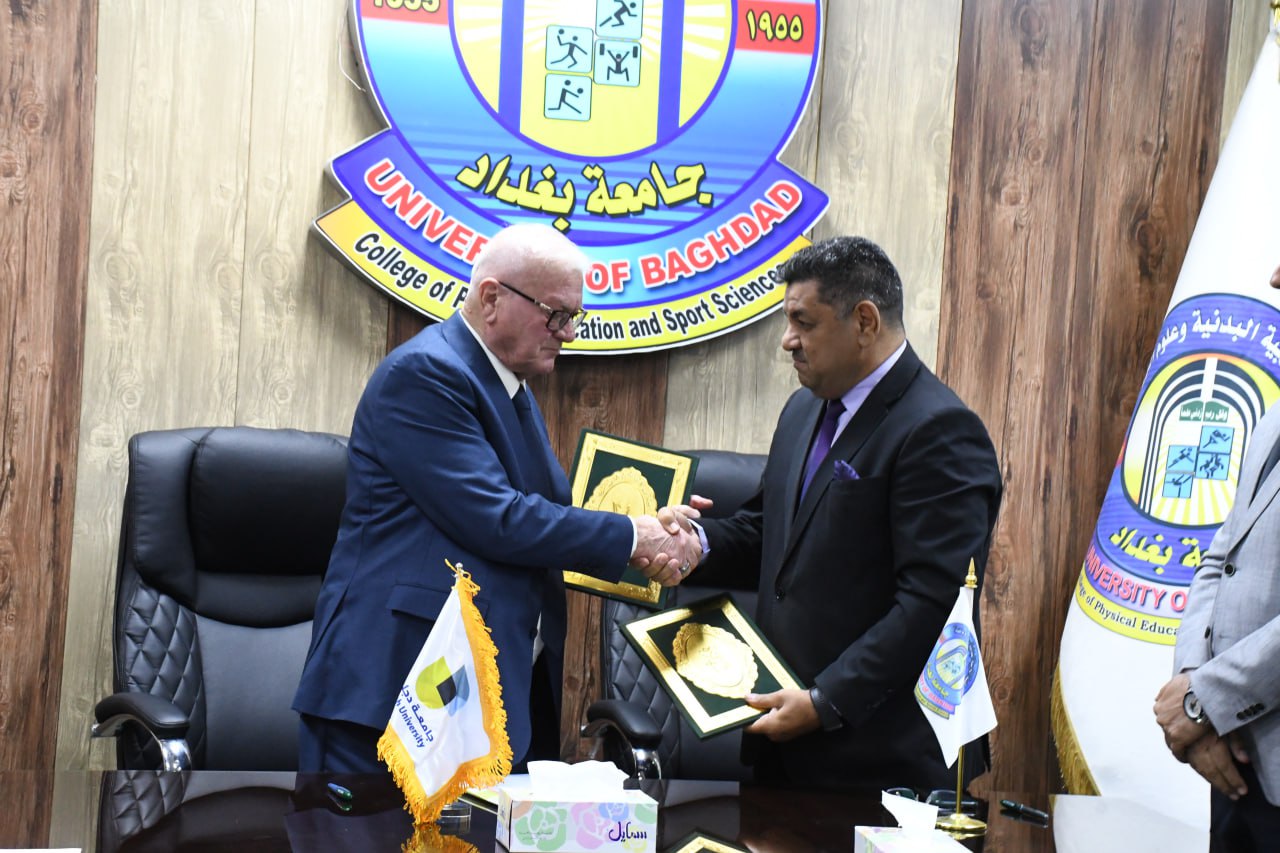As part of its commitment to academic openness and the strengthening of scientific cooperation among Iraqi universities, the College of Physical Education and Sport Sciences at the University of Baghdad signed a twinning and joint cooperation agreement with the Colleges of Physical Education and Sport Sciences at Dijlah and Al-Nisour Universities.
The agreement was signed in the presence of Prof. Sabah Qasim Khalaf, Dean of the College of Physical Education and Sport Sciences at the University of Baghdad; Prof. Samir Muslat Al-Hashemi, Dean of the College of Physical Education and Sport Sciences at Dijlah University; and Prof. Hamdan Raheem Rajah, Dean of the College of Physical Education and Sport Sciences at Al-Nisour University.
The agreement aims to strengthen academic and scientific cooperation among the three institutions, exchange expertise in educational and research fields, and enhance university performance to improve the academic level of students in physical education and sport sciences. It includes collaboration in curriculum development and alignment of course content for corresponding programs, organizing training workshops to enhance teaching and technical skills, joint supervision of graduation and postgraduate projects, conducting and publishing joint research in international journals, organizing sports, scientific, and cultural activities, and promoting administrative and laboratory quality standards in line with academic accreditation criteria.
The signing ceremony was attended by members of the College Council at the University of Baghdad and Dr. Ali Ahmed Hadi, Assistant President of Dijlah University for Administrative Affairs. Prof. Sabah Qasim Khalaf emphasized that this agreement reflects the University of Baghdad’s commitment to fostering partnerships with reputable private universities to promote scientific integration and sustainable development in higher education and sport sciences. Following the signing, the deans exchanged commemorative shields in a spirit of collaboration and mutual respect.
This initiative supports the United Nations Sustainable Development Goals, particularly SDG 4 (Quality Education), SDG 9 (Industry, Innovation and Infrastructure), and SDG 17 (Partnerships for the Goals).
